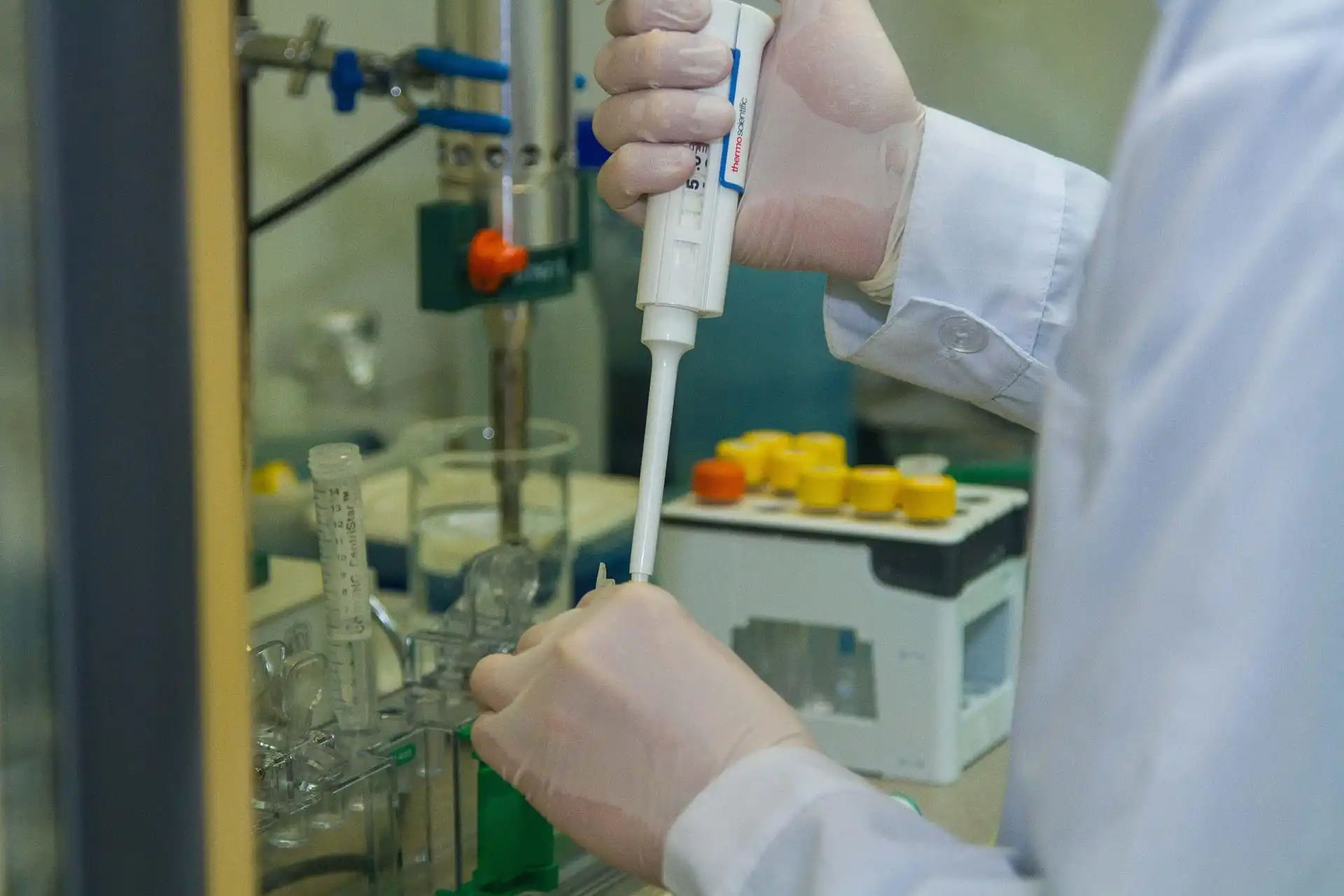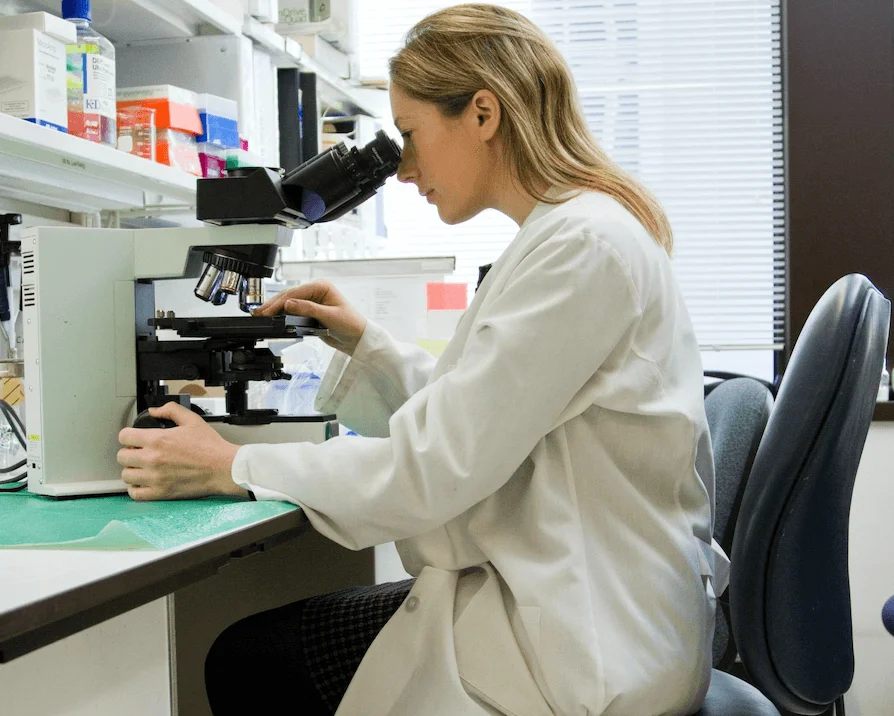

Commercial Businesses

Research Companies


Chenodeoxycholic Acid in Biotechnology Research for Diabetes Treatment
Chenodeoxycholic acid (CDCA) is a bile acid produced by the liver and stored in the gallbladder. It plays an essential role in digesting dietary fats. This article provides an overview of the use of CDCA in biotechnology research, specifically the use of CDCA to protect and transport healthy islets for diabetes treatment.
MedicaPharma is a trusted partner for a range of businesses across multiple sectors in the healthcare industry.




Chenodeoxycholic acid works via various mechanisms related to its role as a bile acid. CDCA aids in emulsifying dietary fats by breaking down large fat globules in the small intestine into smaller droplets. This increases the surface area for digestive enzymes (lipases) and facilitates the digestion and absorption of dietary fats.
CDCA additionally enhances the solubility and absorption of fat-soluble vitamins (A, D, E, and K) and other lipophilic compounds. It also plays a critical role in the circulation of certain substances between the liver and the small intestine. This recycling process is vital to the efficient usage of bile acids and continuous digestion.
Further, CDCA metabolizes cholesterol and aids in removing excess cholesterol from the body. In medicine, it is used to treat certain liver and gallbladder conditions by dissolving gallstones and preventing their formation by modifying the composition of bile.
Type 1 diabetes is a chronic disease where insulin deficiency leads to high blood sugar levels and other complications. Treatment for the disease is usually insulin (such as filgrastim) administered via injections to mimic normal insulin levels.
Emerging insulin analogs and insulin pumps aim to improve treatment, however, a bioartificial pancreas using microencapsulated islet transplantation has been proposed as a possible treatment that shows significant promise. According to a study by Dufrane et al., successfully transplanted microencapsulated pig islets into primates (without the need for immunosuppressants) offered a potential treatment that does not require the use of insulin injections. This potentially reduces diabetes-related complications compared to traditional pancreatic transplants requiring immunosuppressive medications.

According to researchers, CDCA enhanced the delivery of primary islets to improve diabetes treatment. Future investigations were recommended to explore the dose-dependent effects of CDCA and potentially other bile acids in tissue delivery, transplantation, and biotechnology.
A recent study explored the use of CDCA to protect and transport healthy islets in type 1 diabetes. Researchers harvested healthy islets and encapsulated them in CDCA microcapsules before transplanting them into diabetic mice. The CDCA-graft group exhibited enhanced glycemic control, possibly through brain-related effects, however improvement in insulin delivery and glycemic control was short-lived.
Research findings indicate that integrating CDCA into microcapsules improved their strength and durability. After transplantation, the islets enclosed in CDCA-containing microcapsules exhibited enhanced functionality, with improved insulin release and glycemic response. Additionally, CDCA incorporation reduced inflammation, suggesting better performance and pharmaceutical effectiveness.
GMP-certified products are produced and controlled according to standards set by regulatory authorities and relevant industry organizations.
Quality Assurance | Safety and Efficacy |
GMP is a mark of quality. Compliance with GMP standards ensures products are manufactured to high standards, including consistency, equipment, employee training, testing, and facility design. | GMP-certified products undergo robust quality control and testing procedures to ensure they are consistent, safe, and effective. This is absolutely critical for substances intended for human consumption. |
Regulatory Compliance | Supply Chain Reliability |
GMP is recognized worldwide as the leading standard for producing and distributing APIs. Many regulatory authorities, including the European Medicines Agency (EMA), and the US Food and Drug Administration (FDA) require GMP compliance for product approval and marketing. | GMP covers the entire supply chain to make sure your products are top quality from start to finish, including raw material sourcing, storage, and transportation. Choosing GMP-certified APIs ensures supply chain integrity and reduced risk of poor-quality, counterfeit, or contaminated products. |
MedicaPharma is a trusted and fully licenced API distributor based in Europe that leverages a global network of GMP manufacturers to supply high-quality API’s and pharmaceutical intermediates to healthcare organizations all over the world.
Different countries and jurisdictions may have varying regulatory requirements, with poor enforcement of relevant rules and regulations. There may be accountability and transparency issues associated with manufacturing and distribution, which increases your risk of receiving non compliant products.
All MedicaPharma APIs are being checked within a closed GDP logistics circuit; in – and outgoing checks secure the quality and supply of the right material.
Leverage Our Network of 400+ GMP Manufacturers | Access High-Quality Chemicals Produced to GMP Standards | Experience Superior Sales and Support Services |
MedicaPharma partners with over 400 leading global producers to supply hospitals, pharmacies, research facilities, and educational institutions. | All our products are produced in regulated, GMP-compliant facilities and shipped with original documentation. No repacking or relabeling. | MedicaPharma is committed to providing trust, accountability, and transparency. We guarantee our products and support you from start to finish with first-in-class customer service. |
Obtaining your desired quotation from MedicaPharma is easy; simply complete the form below to begin processing your quote request.
"*" indicates required fields
Chenodeoxycholic acid emulsifies dietary fats, aids fat-soluble vitamin absorption, circulates between the liver and small intestine, metabolizes cholesterol, and can be used medically to treat gallstones and improve bile composition.
CDCA is used to treat certain liver and gallbladder conditions by dissolving and preventing gallstones by modifying the composition of bile to facilitate the breakdown of stones. CDCA has also been explored in research for its potential to enhance the delivery of islet cells in diabetes treatment.
CDCA has been explored as a protective and transportive agent for healthy islets in type 1 diabetes. In a recent study, researchers encapsulated these islets in CDCA microcapsules and transplanted them into diabetic mice to assess their impact on glycemic control and islet functionality.
Recent research on CDCA reveals that it can enhance the delivery and effectiveness of primary islets for diabetes treatment. It could potentially reduce or eliminate the need for insulin injections and decrease the complications associated with traditional pancreatic transplants requiring immunosuppressive medications.
EU-based MedicaPharma supplies high-quality APIs and pharmaceutical intermediates to leading sales, research, and education institutions. Click here to request a quote.
Supplier of Special Active Pharmaceutical Ingredients (GMP)
World Wide Shipping – Get a Quick Quote Now – Small quantities in GMP available
MedicaPharma – WORLDWIDE NICHE API SPECIALIST
All materials supplied according to:


Obtaining your desired quotation from MedicaPharma is easy; simply complete the form below to begin processing your quote request.
"*" indicates required fields
Obtaining your desired quotation from MedicaPharma is easy; simply complete the form below to begin processing your quote request.
Please note: MedicaPharma cannot and will not supply customers in the United States due to regulatory restrictions.
"*" indicates required fields
WhatsApp us